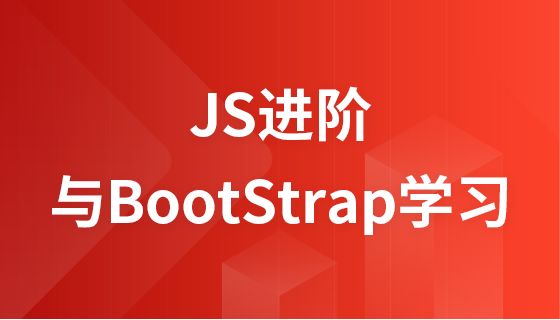
本文深入探讨了go语言中,当通过channel发送指向可变数据的指针时,因指针复用而导致接收端数据重复或不一致的问题。文章通过代码示例详细解析了问题根源,并提供了两种核心解决方案:为每次发送创建新的数据实例,或直接使用值类型进行数据传输,旨在帮助开发者编写更健壮、并发安全的go程序。
在Go语言的并发编程中,Channel是实现Goroutine间通信的关键机制。然而,当开发者不当地复用指向可变数据的指针并通过Channel发送时,可能会遇到接收端读取到重复或不一致数据的问题。这通常发生在发送方Goroutine在将指针发送到Channel后,又立即修改了该指针所指向的底层数据,而接收方Goroutine尚未及时处理该数据的情况下。
以从MongoDB oplog读取数据为例,如果Tail函数在每次循环中都复用同一个*Operation指针,并将其发送到Channel,那么当接收方从Channel读取数据时,它获得的可能不是发送时该指针指向的那个特定值,而是该指针在接收方读取前被发送方修改后的最新值。这种现象在初始加载大量历史数据时尤为明显,因为此时发送方处理速度可能远快于接收方。
为了更好地理解这个问题,我们通过一个简化的*int示例来演示。考虑以下代码片段:
package main
import (
"fmt"
"time"
)
func main() {
c := make(chan *int, 1) // 创建一个容量为1的*int类型channel
go func() {
val := new(int) // 在Goroutine外部声明并初始化一个*int指针
for i := 0; i < 10; i++ {
*val = i // 每次循环修改同一个地址的值
c <- val // 发送的是同一个指针的副本
// fmt.Printf("Sent pointer %p with value %d\n", val, *val) // 调试信息
}
close(c)
}()
for val := range c {
time.Sleep(time.Millisecond * 1) // 模拟接收方处理延迟
fmt.Println(*val) // 打印指针指向的值
}
}运行上述代码,你可能会得到类似这样的输出:
2 3 4 5 6 7 8 9 9 9
机制解析:
在原始的MongoDB oplog读取场景中,iter.Next(&oper)每次都将新的数据填充到oper所指向的内存地址,然后Out <- oper发送的是这个oper指针的副本。如果iter.Next执行得很快,oper指向的数据在被接收方处理之前就被多次更新,就会出现数据重复的问题。
解决这个问题的最直接方法是确保每次发送到Channel的指针都指向一个独立且不被后续操作修改的数据副本。这意味着在每次迭代中,都应该创建一个新的Operation实例。
将原始代码中的Tail函数进行如下修改:
package main
import (
"fmt"
"labix.org/v2/mgo"
"labix.org/v2/mgo/bson"
)
type Operation struct {
Id int64 `bson:"h" json:"id"`
Operator string `bson:"op" json:"operator"`
Namespace string `bson:"ns" json:"namespace"`
Select bson.M `bson:"o" json:"select"`
Update bson.M `bson:"o2" json:"update"`
Timestamp int64 `bson:"ts" json:"timestamp"`
}
func Tail(collection *mgo.Collection, Out chan<- *Operation) {
iter := collection.Find(nil).Tail(-1)
// var oper *Operation // 移除这里的声明
for {
for {
var oper Operation // 每次迭代声明一个新的Operation值类型变量
// iter.Next需要一个指针来填充数据,所以这里取&oper
if !iter.Next(&oper) {
break
}
fmt.Println("\n<<", oper.Id)
// 将oper的地址发送到Channel。由于oper是局部变量,每次循环都是新的实例。
Out <- &oper
}
if err := iter.Close(); err != nil {
fmt.Println(err)
return
}
}
}
func main() {
session, err := mgo.Dial("127.0.0.1")
if err != nil {
panic(err)
}
defer session.Close()
c := session.DB("local").C("oplog.rs")
cOper := make(chan *Operation, 1)
go Tail(c, cOper)
for operation := range cOper {
fmt.Println()
fmt.Println("Id: ", operation.Id)
fmt.Println("Operator: ", operation.Operator)
fmt.Println("Namespace: ", operation.Namespace)
fmt.Println("Select: ", operation.Select)
fmt.Println("Update: ", operation.Update)
fmt.Println("Timestamp: ", operation.Timestamp)
}
}修改说明:
如果Operation结构体不是非常大,或者你希望简化并发编程中的数据管理,可以直接通过Channel发送Operation结构体的值副本,而不是其指针。当发送值类型时,Go会自动对整个结构体进行深拷贝(如果结构体内部没有引用类型),从而彻底避免了指针复用带来的问题。
package main
import (
"fmt"
"labix.org/v2/mgo"
"labix.org/v2/mgo/bson"
)
type Operation struct {
Id int64 `bson:"h" json:"id"`
Operator string `bson:"op" json:"operator"`
Namespace string `bson:"ns" json:"namespace"`
Select bson.M `bson:"o" json:"select"`
Update bson.M `bson:"o2" json:"update"`
Timestamp int64 `bson:"ts" json:"timestamp"`
}
// Tail函数现在发送Operation值类型
func Tail(collection *mgo.Collection, Out chan<- Operation) { // Channel类型改为Operation
iter := collection.Find(nil).Tail(-1)
var oper Operation // 声明为Operation值类型
for {
for iter.Next(&oper) { // iter.Next仍然需要一个指针来填充数据
fmt.Println("\n<<", oper.Id)
Out <- oper // 发送Operation的副本,Go会自动进行值拷贝
}
if err := iter.Close(); err != nil {
fmt.Println(err)
return
}
}
}
func main() {
session, err := mgo.Dial("127.0.0.1")
if err != nil {
panic(err)
}
defer session.Close()
c := session.DB("local").C("oplog.rs")
// Channel类型改为Operation
cOper := make(chan Operation, 1)
go Tail(c, cOper)
for operation := range cOper { // 接收Operation值
fmt.Println()
fmt.Println("Id: ", operation.Id)
fmt.Println("Operator: ", operation.Operator)
fmt.Println("Namespace: ", operation.Namespace)
fmt.Println("Select: ", operation.Select)
fmt.Println("Update: ", operation.Update)
fmt.Println("Timestamp: ", operation.Timestamp)
}
}修改说明:
在Go语言中使用Channel进行并发通信时,理解值类型和指针类型的传递机制至关重要。当通过Channel发送指针时,务必确保每个发送的指针都指向一个独立的数据实例,以避免因指针复用导致的竞态条件和数据不一致问题。对于小型数据结构,直接发送值类型是更安全、更简洁的选择。对于大型数据结构,虽然发送指针可以提高效率,但必须谨慎管理内存和确保并发安全。遵循这些原则,可以帮助开发者构建更健壮、更可靠的Go并发应用程序。
以上就是Go Channel中指针复用导致数据重复的深入解析与解决方案的详细内容,更多请关注php中文网其它相关文章!

每个人都需要一台速度更快、更稳定的 PC。随着时间的推移,垃圾文件、旧注册表数据和不必要的后台进程会占用资源并降低性能。幸运的是,许多工具可以让 Windows 保持平稳运行。




Copyright 2014-2025 https://www.php.cn/ All Rights Reserved | php.cn | 湘ICP备2023035733号